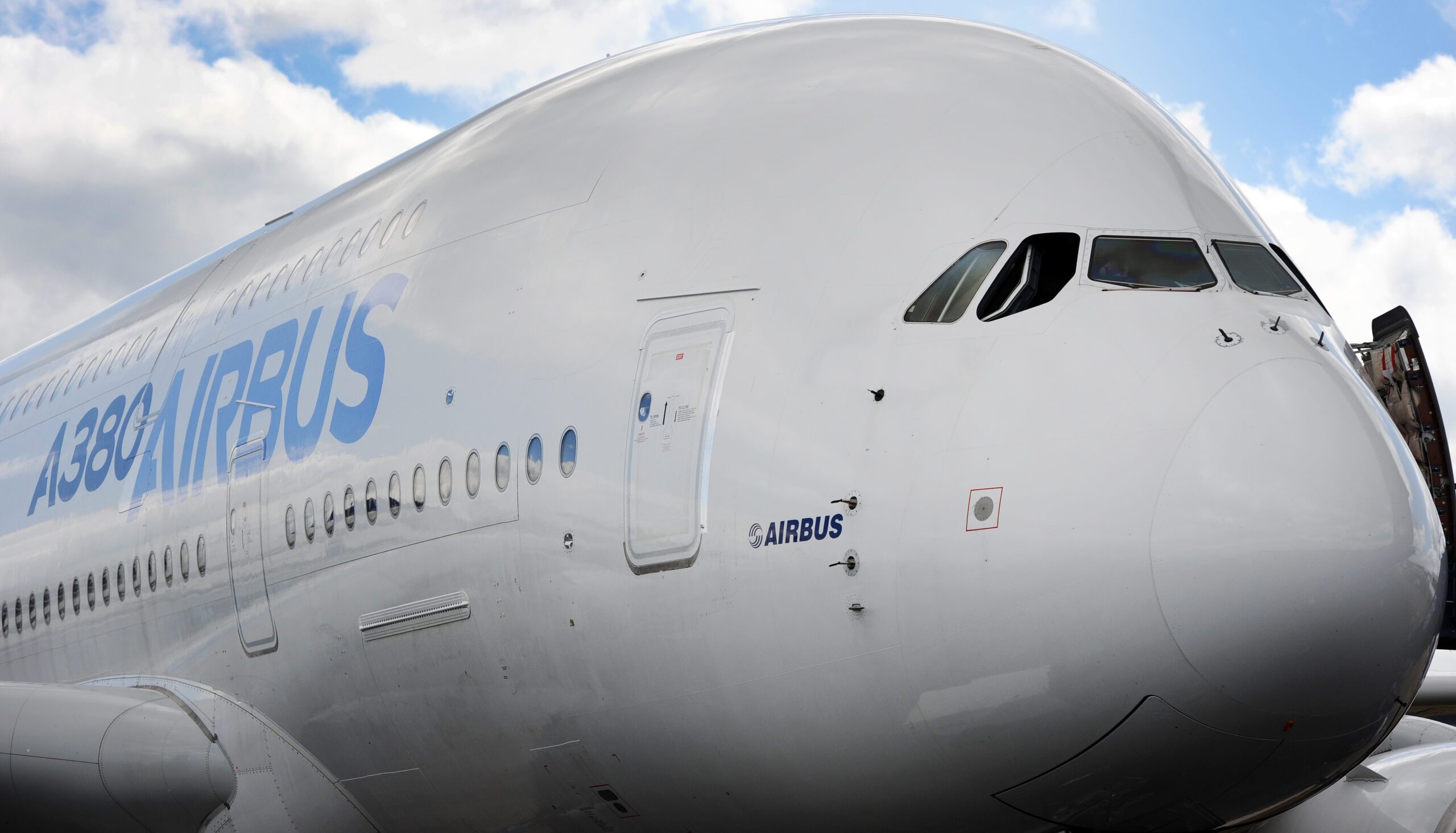SUMMARY
This is AI generated summarization, which may have errors. For context, always refer to the full article.

FARNBOROUGH, United Kingdom – The aircraft sector hit turbulence Wednesday, July 13, as European giant Airbus slashed output of its A380 superjumbo because of weak demand, putting the brakes on plane orders generally at Farnborough.
The Franco-German planemaker revealed at Farnborough – one of the world’s largest civilian and defense airshows – that it would halve production of its enormous A380 to one a month from 2018.
Airbus Group chief executive Tom Enders said Wednesday he hoped the cutbacks, announced late Tuesday, July 12, would last for “just a year or two”, adding he remained optimistic over the jet’s prospects.
“We are all pretty up optimistic about the longer term prospects of the A380 and I hope this is just a year or two and then we can raise production rates again,” Enders told reporters at the show, held south of London.
“We decided back in 2000 to launch the A380 (and) little did we know what the world would look like in 2010, 2015 or 2016.”
He added: “We believe in this aircraft, the company knows what to do. We are proactive and I am quite confident that we will be able to (again) raise production rates.”
Enders said Airbus needed “to work harder to convince airlines that this aircraft really pays off if you can fill it.”
“It’s a real money-making machine,” he insisted.
In what has been a relatively quiet show for new orders of planes generally, Airbus’ US rival Boeing on Wednesday inked previously-announced jet deals worth a total of $3.79 billion (3.42 billion euros) with Air Europa of Spain and Ruili Airlines of China.
For its part, Airbus finalized a $6.6-billion order for 62 single-aisle fuel-efficient A320neo airplanes from Synergy Aerospace Corporation, which is the largest shareholder of Colombia-based carrier Avianca and owner of Avianca Brasil.
Airbus had unveiled on Tuesday firm orders for 129 aircraft worth a combined $15.6 billion.
Those included a vast $12.5-billion deal for 100 single-aisle A321neo jets from Malaysia’s AirAsia.
Airlines usually command steep discounts when they purchase aircraft in bulk. (READ: Airbus and Boeing face off at rain-soaked Farnborough)
A380 announcement steals show
However, the shock A380 announcement has stolen the show and reminded participants about the gloomy economic backdrop.
The A380 is the world’s largest civilian airplane, carrying up to 544 passengers in a 4-class configuration or 853 in just a single class.
The jet – which has 4 engines – has a list price of $432.6 million but it has not registered any sales yet at the week-long Farnborough event.
Dubai’s Emirates airline is the biggest client for the A380, operating 81 with another 142 on order.
“Emirates will have to replace their aircraft and wants to increase their fleet,” added Fabrice Bregier, who is CEO of the Airbus commercial aircraft division.
“If they have the capability to do that and they said if we want to replace an A380, it will be by an A380.”
“A customer telling you: I am ready to buy up to 200 aircraft has a lot of value (and) if they confirm that in a few years, we will have to ramp up (output) again for sure.”
The superjumbo was launched in 2007 and has since received 319 orders from 18 global airlines, of which it still has yet to deliver 126.
Jefferies analyst Sandy Morris said the A380 also faced competition from Boeing’s 777-300ER long-range aircraft.
“The A380 simply ran into a very good all-round competitor in the B777-300ER,” Morris told AFP, adding that Airbus’ target markets of the Indian sub-continent and the wider Asia region has a limited appetite for the superjumbo.
“Those markets have to grow to the point where such a large aircraft is needed,” he said.
Emerging market carriers ‘in ascendancy’
This year’s Farnborough was the first held since Britain voted in June to leave the European Union, stoking jitters over global demand for airplanes.
However, emerging markets have helped boost the order books, with China and India lining up for large purchases.
Indian budget carrier Go Air signaled its intention Tuesday to buy another 72 Airbus A320neos worth $7.7 billion.
“The interesting thing is the resurgence of India after some time in the doldrums,” noted independent analyst Howard Wheeldon.
“It seems that emerging market budget airlines are once again in the ascendancy.” – Rappler.com
Add a comment
How does this make you feel?
There are no comments yet. Add your comment to start the conversation.